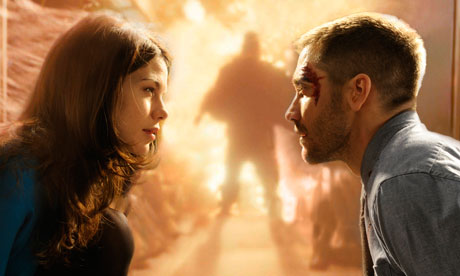Kelvin and Hari.
Considered by Andrei Tarkovsky to be the least favorite film that he has ever directed and is also lowly regarded by the source novel's author (Stanislaw Lem), "Solaris" is not quite the cinematic darling before than it was today. And if that is quite the case, that even the director himself is not that keen on singing praises about his own work, then who are we to like it more than the one who created it? But then I suddenly remember that I liked "The Virgin Spring" immensely: the film that Ingmar Bergman himself has also considered to be one of his weakest works. And damn, we all love "The Seventh Seal", a film that Bergman has labeled as nothing more than a 'lousy imitation' of Akira Kurosawa. Perhaps to really be a great artist, one must have an adequate dose of insecurity, because if one does not have any, then how can that artist properly discourse on the weakness of man (a most favorite topic to tackle among great filmmakers)?
In this film's case, Tarkovsky himself, knowing that "Solaris" has not been powerful enough to transcend the science fiction genre, reflects what the film itself is all about: that man can never reach an ambiguous goal because it is something that he 'fears and doesn't want'; that man, whatever knowledge he may have, is but a minuscule detail in the whole thick of the universe, and that man, as he seeks intelligence, creates more confusion in the process.
There has always been this preconceived notion that the vastness of space is indeed something that 'we can't fully understand'. But what if it's the one that wants to understand us? And what if it's just us who can't really comprehend ourselves? These are such questions raised by "Solaris", a masterful interstellar drama that tries to expound on the mysteries of the great beyond and, subsequently, of our very soul. What results is, bar none, one of the most emotionally articulate science fiction films ever conceived and also one of the most inquisitive.
The film's plot, perhaps the most linear and derivative of all Tarkovsky films, concerns a psychologist, named Kris Kelvin (Donatas Banionis), and his mission to find out what's really going on in a space station orbiting a mysterious oceanic planet. When he arrived, he found the crew emotionally disheveled, extremely worrisome and jumpy beyond belief. And to add to that, his already dead wife, Hari (Natalya Bondarchuk), has suddenly materialized back into life. What's really going on?
Tarkovsky, a filmmaker who we all know is careful not to be limited by the mechanics of a specific genre, makes it sure that expository dialogue and special effects are kept at a minimum. In addition, his pacing is as deliberate as it can be. After all, he never went to space to visually showboat, to tell a lightning-fast story or to discuss mere technology; he's there to philosophize about humanity.
Just like his later, very companion-y "Stalker", "Solaris" also operates under its own set of cerebral, emotional and physical rules. It's also less concerned on explaining things just like how a magician is never inclined on revealing the secrets of his trade. Mysterious plot devices, such as the 'Annihilator', are mentioned but not fully expounded upon. Characters' inner landscapes are further explored but never explained why. There's also a recurring sense of futility in the characters' numerous philosophical clashes. In the end, something may have been ostensibly resolved, but surely at a bitter cost.
Andrei Tarkovsky, however challenging his works may be, is in fact a subtly didactic and optimistic filmmaker. Deeply submerged in existential despair his films may sometimes be, Tarkovsky never forgets to insert the idea that man can be better off if only he can know his limitations; if only he can be less grandiose in his ambitions; if only he can be aware of the fact that man only needs man.
"Solaris", aside from being a meditative psychological drama, is also a timeless parable on humility. We've always been deluded by the idea that we're not alone in this universe and that, ultimately, we can make first contact with whoever they are or whatever it is. But as what this film suggests, such intention to see and know too much negates the very essence of existence itself.
FINAL RATING






